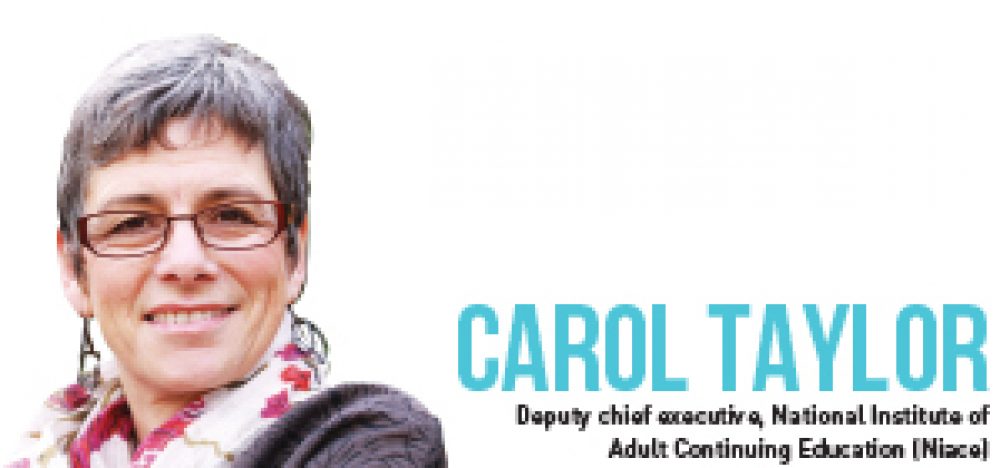A report on family learning last year from Niace called for a huge expansion in family education programmes to improve child and adult numeracy, literacy and other key skills. Carol Taylor assesses the report’s impact eight months on.
The first few years of life are vital for everyone’s future attainment and achievement. We cannot rely on schools alone.
Many families lack the resources, knowledge or confidence to help their children, meaning that the inter-generational cycle of low achievement, prosperity and aspiration will continue. This is why we see family learning as being a crucial element for economic and social renewal.
We must create a situation where homes become places where learning is seen as normal, where children and young people see the value of learning and come to post-16 provision ‘ready to learn’.
We are not alone in this vision, but family learning’s progress in becoming a permanent part of our lifelong learning system has suffered lately through the split in government departments.
There is plenty of enthusiasm and support, but because no Government department takes responsibility and no agency leads on its CPD, quality or innovation, family learning has been left floundering in ‘no man’s land’.
This means provision is sporadic, but that does not mean its quality is. Anything but, in fact.
There is a big role here for FE providers with their availability of experienced adult teachers, suitable curricula and access to qualifications
The Niace-led independent Inquiry into Family Learning was set up in 2012, under the guidance of its chair, Baroness Valerie Howarth, to examine the current state of family learning in England and Wales, and to make recommendations about how we can ensure its place as a powerful intervention within the system.
We found that family learning can increase children’s development by as much as 15 percentage points and could cut the costs of ‘vulnerable families’. We heard from people who told us about the incredible impact learning has had on their family’s lives, not just on their learning but on their health, job prospects and involvement in their local communities.
The inquiry provoked a renewed interest. For instance, Ofsted is working with us, visiting several different examples of excellent practice across the country. This was inspired by a claim at the inquiry’s launch that some head-teachers saw inspection as a barrier to using the Pupil Premium to fund family learning provision — one of the inquiry’s main recommendations.
Discussions with the Education Endowment Foundation are also underway to consider how family learning can be used as an intervention if supported by the Pupil Premium. This work will give head-teachers research findings to show the value, and practical ways, of making family learning work in their school.
A further piece of work, sponsored by the Paul Hamlyn Foundation, will see six pathfinder projects linking schools with other providers to develop family numeracy in a range of different contexts — including sport and financial capability. This will produce resources, curricula and a blueprint for further similar, or indeed, imaginative provision.
The final recommendation of the inquiry called for the setting up of a national forum. Meeting for the first time in July, this forum — with representatives from all the relevant national organisations, including government departments — will start the process of creating a better understanding of family learning and call for increased investment.
But this is not solely a responsibility for schools. There is a big role here for FE providers too, with their availability of experienced adult teachers, suitable curricula and access to qualifications. Every child needs the best possible start in life and it is often children who inspire parents/carers or grandparents to return to learning.
As we, and Ofsted, have seen, the best family learning provision grows people’s confidence. It helps children to improve their levels of attainment at school, prepares all of us for the rapidly changing labour market and will ultimately go a long way to ensuring strong economic and social growth for everyone.
Carol Taylor, Deputy chief executive, National Institute of Adult Continuing Education (Niace)









Your thoughts